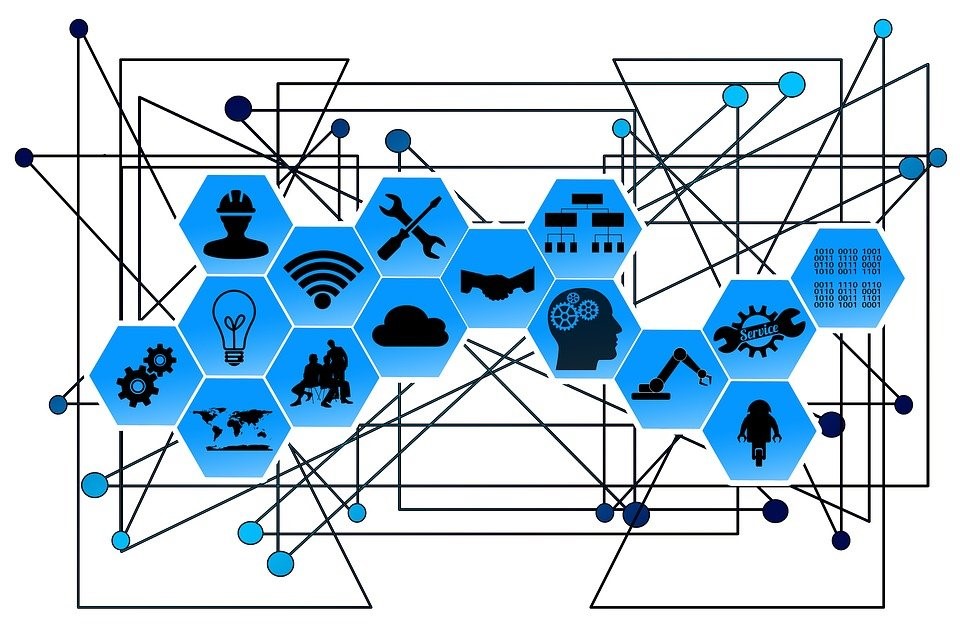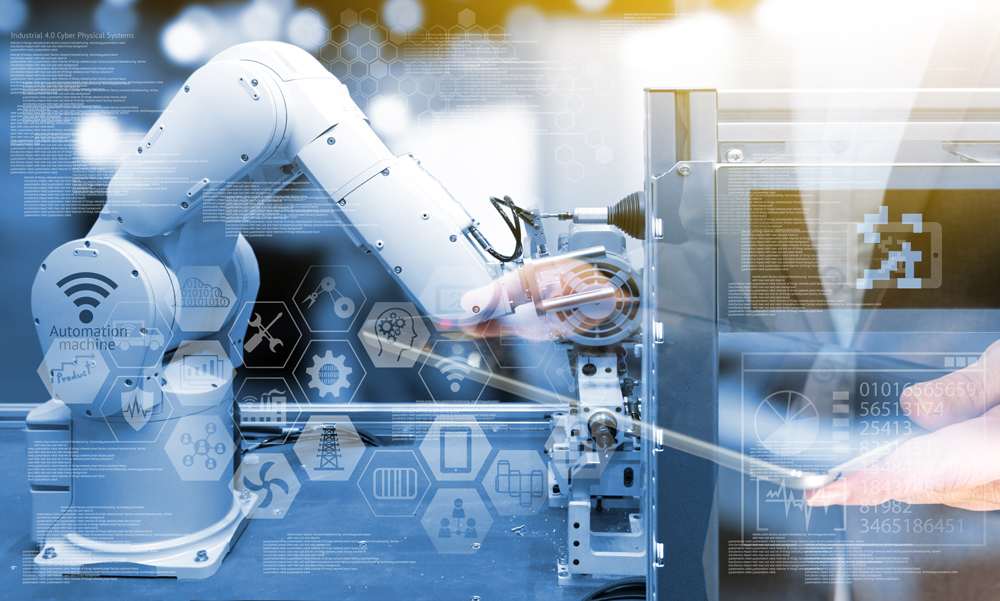Machine learning for predictive maintenance of transmission oils
In the Smart Gear project, researchers at Fraunhofer EMFT are developing solutions to detect a drop in the performance of gear oils with the help of sensor technology and machine learning methods and to predict when the oil needs to be changed.
Learn more
Artificial intelligence in the sensor node @ Fraunhofer EMFT
As a result of ongoing digitalization, the volume of sensor data being collected and analyzed is growing rapidly. In order to transfer the huge volumes of data quickly and securely, researchers at Fraunhofer EMFT are focusing on equipping sensors and actuators with artificial intelligence (AI).
Learn more
diVIBES - Digital 3D broadband vibration sensors for improved machine monitoring through machine learning with Fraunhofer ENAS
In the project diVIBES a system for predictive condition monitoring based on the detection of vibrations is developed. Innovations along the entire information chain will make a significant contribution to the improvement of predictive condition monitoring and process optimization.
Learn more
AI-supported development of electronic systems for future vehicle generations in the progressivKI project with Fraunhofer ENAS
In the project progressivKI, eighteen top-class partners are working together in a consortium under the coordination of Robert Bosch Multimedia Car GmbH in Hildesheim and with project management support by edacentrum.
Learn more
Integrable spectral sensors in multireactor technology - interpretation of results using neural networks @ Fraunhofer ENAS
As part of a research project, Fraunhofer ENAS integrated a miniaturized spectrometer module into the system architecture of a multi-reactor system, qualifying it for various hydrogenation reactions.
Learn more
Implementation of a novel magnetic field-based positioning method using AI @ Fraunhofer ENAS
As part of the Sens-o-Spheres project, a novel magnetic field-based method was developed remedying these disadvantages and achieving a local resolution of about a few centimeters.
Learn more
Applied Machine Learning Research Group @ Fraunhofer HHI
The Applied Machine Learning group is developing and researching novel methods across different directions such as deep learning, supervised and unsupervised learning, multimodality, and hybrid models.
Learn more
KICK - Artificial intelligence for campus communication with Fraunhofer HHI
The goal of KICK is to significantly simplify and improve the operation of future 5G campus networks by using AI methods. The focus here is on Industry 4.0 environments with their high reliability and latency requirements.
Learn more
Research focus machine learning @ Fraunhofer IIS
Fraunhofer IIS researchers are proficient in classical methods of "machine learning" and image analysis as well as in the nowadays often superior methods of "deep learning" and have many years of experience in the development of applications for computer-assisted diagnosis support.
Learn more
Implementation and integration of machine learning on embedded devices
Fraunhofer IIS covers both microcontroller-based machine learning and the use of embedded chips with deep learning accelerators. For a given problem, researchers analyze the system requirements and determine the appropriate algorithms and the best hardware options.
Learn more
Machine learning for hand tools @ Fraunhofer IIS
Manual processes also take place in the production chain of Industry 4.0. To integrate these processes, experts in localization, networking, and machine learning (ML) have developed an embedded intelligent sensor module for hand tools that can be integrated into existing production IT infrastructures.
Learn more
Spare parts forecasting with machine learning @ Fraunhofer IIS-SCS
The Analytics department of the Supply Chain Services working group at Fraunhofer IIS has developed a long-term forecasting tool for the all-time demand for spare parts based on machine learning. Companies can now estimate their spare parts inventories more accurately, use storage space more efficiently and, last but not least, reduce overstocking, understocking and scrapping costs.
Learn more
Data analytics: application of AI for data-supported system optimization @ Fraunhofer IISB
Important for viable solutions in the dynamic field of data analytics and AI is a close collaboration with relevant teams and institutions, e.g. the Modeling and Artificial Intelligence department of IISB or the ADA Lovelace Center, of which Fraunhofer IISB is a founding member.
Learn more
Modeling and artificial intelligence @ Fraunhofer IISB
Fraunhofer IISB works on the development and application of physical models, algorithms, and simulation programs for semiconductor processing, semiconductor devices, as well as for integrated systems such as those used in the field of power electronics.
Learn more
Modeling of hydrogen systems (digital twins) @ Fraunhofer IISB
Hydrogen is regarded as a promising energy source of the future for stationary and mobile applications. At the same time, hydrogen serves as a chemical feedstock for numerous industrial processes. Fraunhofer IISB has been active in the research and development of hydrogen systems since 2013.
Learn more
AlfES - Artificial Intelligence for Embedded Systems @ Fraunhofer IMS
The first open source AI framework "Made in Germany", developed as a Maker project at the Fraunhofer Institute for Microelectronic Circuits and Systems IMS. AIfES® is comparable and compatible with well-known Python ML frameworks like TensorFlow, Keras or PyTorch.
Learn more
Human recognition with embedded AI @ Fraunhofer IMS
In the project "noKat" (development of a neural optical camera tracker for the detection of approaching persons), which is funded by the German Federal Ministry for Economic Affairs and Energy, Fraunhofer IMS is developing an optical proximity sensor together with the partner company van Rickelen GmbH & Co. KG.
Learn more
Federated learning for resource-constrained systems @ Fraunhofer IMS
In the Fraunhofer-wide project SEC-Learn (Sensor Edge Cloud for Federated Learning), the main aim is to find out which developments are necessary so that the training of neural networks can be carried out directly at the sensor, but at the same time all other sensor nodes benefit from what has been learned - so-called federated learning.
Learn more
Personalizable AI / Personalizable gesture recognition @ Fraunhofer IMS
The Fraunhofer IMS is researching on a personalizable artificial intelligence (AI), which offers the possibility that devices can be adapted or optimized to their user by means of training. Since the AI software framework AIfES is able to train artificial neural networks (ANN) on e.g. microcontrollers, the technical basis for this has already been developed.
Learn more
PREVAIL - A multi-hub Test and Experimentation Facility for edge AI hardware @ Fraunhofer IZM, IIS, EMFT, IPMS
The main objective of the PREVAIL project is to establish and start operating the core of a networked, multi-hub platform providing prototype chip fabrication capability, in advanced technology, to EU stakeholders for Artificial Intelligence (AI) applications.
Learn more

 Fraunhofer Group for Microelectronics in cooperation with the Leibniz institutes IHP and FBH
Fraunhofer Group for Microelectronics in cooperation with the Leibniz institutes IHP and FBH